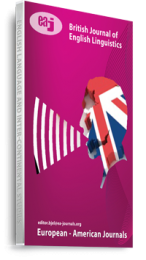Language as a structure of meaning giving and reality creation is composed of words, phrases and sentences. Humans’ communications are based on these features to describe an event, explain one’s emotions, needs, interests and fears etc. Language is used to resolve or escalate dispute. People from different culture and social units perceive the world through the lens provided by their distinctive languages. Meaning that language provides repertoire of words that name the categories into which the language users have divided their world. In fact, definitions of words are linguistically, culturally and contextually bound. This is because words carry meanings that make sense to members of a shared social environment. Dispute resolution relies heavily on words (language). However, there is an underlying assumption in Nigeria that all these words should be in English – the second language. The researcher posits that if English is to be a conflict resolution tool in Nigeria. It must accommodate the diversity of culture and language usage. The paper therefore explores the challenges of English language in intercultural conflict resolution, and emphasizes the need to consider the different uses of the language in national and transnational conflict resolution.
Keywords: Conflict Resolution, Culture, English, Language, Lingua Franca

